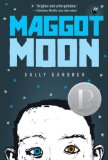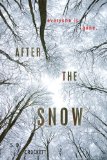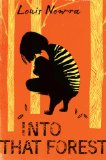Summary | Excerpt | Reading Guide | Reviews | Beyond the book | Read-Alikes | Genres & Themes | Author Bio

What a pleasure it is to enter into the world of a new novel and try to figure out how it works. Maggot Moon is a puzzle to solve. First, there are the short, staccato chapters, each only a page or two. Then there are the mildly disturbing illustrations by Julian Crouch, a flip-book fly and rat (along with rat poison, decomposition, and maggots) loitering in the margins of the text. We find ourselves inside the mind of an oppressed kid in an authoritarian school, which turns out to be in a totalitarian state, "The Motherland." Soon it becomes clear that we are deep in a dystopian revision of history. In this version of the 1950s, Britain is a conquered state, and the government is at work keeping its citizens buried not in pleasurable fictions, but brutal lies.
The narrator, fifteen year-old Standish Treadwell, has a mind that is itself a bit of a labyrinth. He describes himself as "not being anything that fitted neatly on lined paper." He is dyslexic, and while the concept of dyslexia isn't available in his world, author Sally Gardner makes it clear on the book jacket that she is dyslexic herself, and an advocate for dyslexic kids. Standish is drawn with nuance and compassion. He is keenly intelligent; his mind doesn't fit in predefined school structures any more than his personality fits into the categories The Motherland lays out for him. He's a great underdog character, and his dyslexia is presented as one of the gifts that allows him to think outside the rigid, cruel box he's been born into.
The language Standish uses is fresh on every page. Gardner gives him a rich lexicon of fractured idioms ("cautious as hen's teeth") and slightly off vocabulary ("The teachers had on their glad drags."). He speaks like a non-native speaker in his own language, partly because of the dyslexia and partly because, in his world, English is an underground dialect. Standish's impressions, and his moral journey, are the most important threads of the book – and the plot itself remains impressionistic. There are echoes of many dystopian novels here, some implied (revisionist history tales like Philip K. Dick's The Man in the High Castle come to mind) and some directly quoted. When Standish remarks, for instance, that one of of the regime's thugs has put "two and two together, made five", it's a reference to George Orwell's 1984. Even the main thrust of the plot, which I won't spoil here, seems based on a familiar, much recycled conspiracy theory. All the same, Gardner's vision does not seem stale. The political circumstances that gave rise to the classic dystopian novels of the twentieth century are in no way gone from the world. Today's young people have to make sense of grim facts about torture and totalitarianism in the news, so it makes sense to give them books in which to work through these moral dilemmas.
Still, Maggot Moon won't be right for every child, even those who fall into the suggested range of age 12 and up. The short chapters and simple prose make the book seem accessible to a wide range of readers, but the glimpses of horrible violence will be too much even for some older teens. There is a mild sprinkling of four-letter words, but it's the blood, and the bleakness of life in The Motherland, that will stick in the imagination. The kids who do read this will benefit from some serious follow-up conversations with their parents and teachers. With the right perspective, there is something transcendent, even ebullient, about Standish Treadwell's point of view.
The Maggot Moon website has an extensive audio excerpt and an essay by its author, Sally Gardner, about the book's background.
![]() This review was originally published in The BookBrowse Review in March 2013, and has been updated for the
September 2014 edition.
Click here to go to this issue.
This review was originally published in The BookBrowse Review in March 2013, and has been updated for the
September 2014 edition.
Click here to go to this issue.

If you liked Maggot Moon, try these:

by S. D. Crockett
Published 2013
After the extremely hard winter of 2009, S. D. Crockett asked herself, "What if winter never ended?" and from that thought, her debut novel, After the Snow, was born.

by Louis Nowra
Published 2013
Two girls survive a terrible flood in the Tasmanian bush and are rescued by a pair of Tasmanian tigers who raise them in the wild. Totally believable, their story will both shock and captivate readers as it explores the animal instincts that lie beneath our civilized veneer and celebrates the ways of the tiger.
It is among the commonplaces of education that we often first cut off the living root and then try to replace its ...
Click Here to find out who said this, as well as discovering other famous literary quotes!
Your guide toexceptional books
BookBrowse seeks out and recommends the best in contemporary fiction and nonfiction—books that not only engage and entertain but also deepen our understanding of ourselves and the world around us.